In conversation: Television Pioneers
Ally Pally’s 150th Birthday Party 27 May 2023 16.30 – 18.00
A closer look at pioneering women in Ally Pally’s Television Story from the University of Sussex’s Connected Histories of the BBC team: Vicky Ball, Margaretta Jolly, Kate Murphy and Emma Sandon.
Join us for conversation and oral history tales about pioneering women who worked at Alexandra Palace, the legendary television studio. The event is part of a massive free birthday party at Ally Pally, including ice skating, street food, music and tours of the beautiful Victorian cinema and production rooms. Don’t miss an amazing, once-in-150-years, opportunity to explore hidden corners of the Palace and the award-winning 196 acre Park. The party will run from 12pm – 9pm.
Website launch marks project completion
Posted on14 March 2023 by John Hughes — No Comments ↓
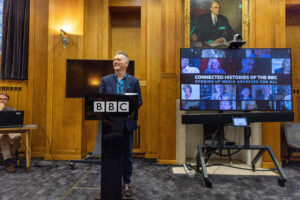
Robert Seatter, Head of BBC History, Broadcasting House 19 Oct 2022
On 19 October 2022, friends and collaborators of the Connected Histories of the BBC project gathered in the Council Chamber of the BBC’s Broadcasting House in London to mark the completion of the project and the launch of our publicly accessible website which opens up the collection to all. As a result, more than 600 hours of recorded interviews with people from across the BBC and beyond are now freely accessible at the click of a button.
We also unveiled Inventing the Future, the final edition of nine themed collections of oral history clips, documents, programme and interpretations. Over the years the BBC has sought not just to reflect society but to change it for the better – whether through widening access to education, countering prejudice and disinformation, developing new technology, or cultivating fresh artistic talent. This grand ‘Reithian’ vision, first set out in the 1920s, has been attacked many times for being paternalistic. But, as this latest release shows, it’s also proven to be a remarkably durable ethos – one that insiders say has had a striking ‘real world’ influence. See more about this chapter here.
Among those speaking at the event were the Head of BBC History, Robert Seatter, pictured here, Project Co-Investigator Dr Alban Webb, Project Administrator and metadata-lead Denice Penrose, Professor Christopher Smith from AHRC, Founder-Director Professor David Hendy and Project Advisory Board member Professor Jean Seaton. The Project’s Principal Investigator, Margaretta Jolly, told the audience that “oral history promises magical connections. It has been championed as the method of choice for the excluded, undocumented, and forgotten. Because of this, many oral historians in this country have been suspicious of corporate oral history. But what we are celebrating here tonight, as with so much of the BBC, disrupts the cliches of corporation and heritage memory-making. We are looking forward to sharing what we’ve done in ‘connecting’ up oral histories of this amazing institution”.
The event also celebrated the publication of the paperback edition of David Hendy’s best-selling book The BBC: A People’s History. David Hendy’s deeply humanising approach to the Corporation’s story is aimed to show that public service broadcasting is something that’s been shaped and re-shaped over the past century by thinking, feeling, fallible individuals – flesh-and-blood people, with passions, prejudices, and ideals. As he thoughtfully concluded, “The BBC is not – or at least, not yet – a machine”.
Lewes Literary Society
David Hendy, the author of The BBC: A People’s History talked at the Lewes Literary Society on 18th October 2022. Full details can be found at http://www.lewesliterarysociety.co.uk/
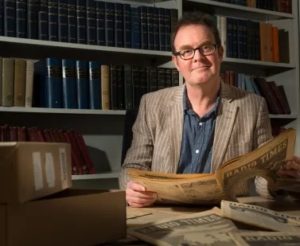
Bradford: 50 years of BBC Radio: National Science & Media Museum (2017)
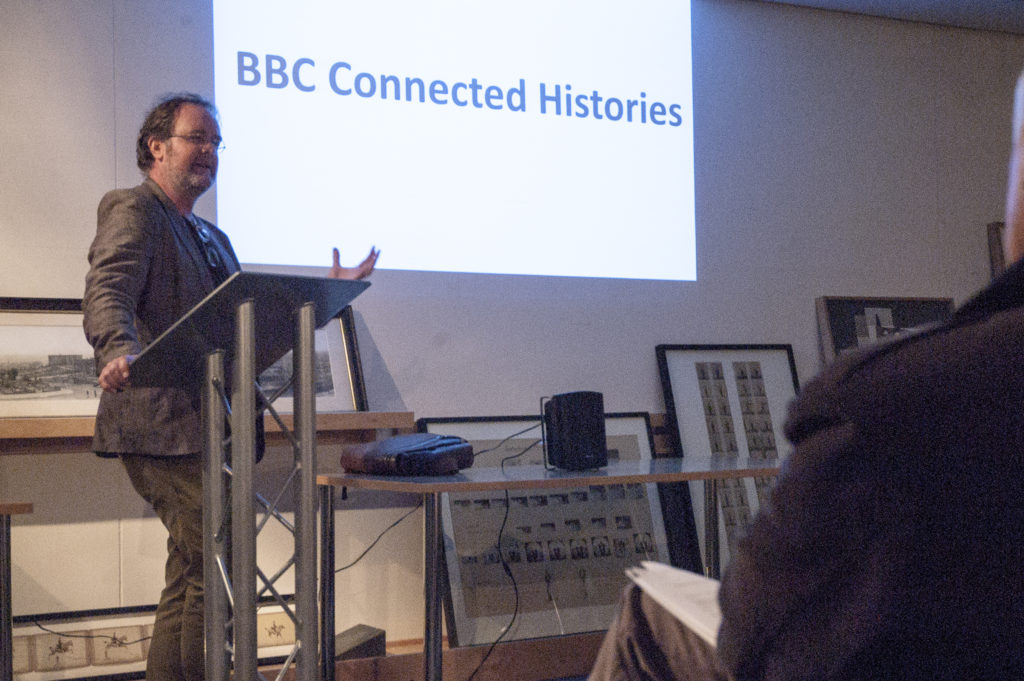
The project’s first public event was held at the National Science and Media Museum in Bradford on Saturday 7th October 2017 and celebrated fifty years of BBC Radio 1,2,3 and 4.
On 30 September 1967, as the Summer of Love reached its climax, the old Home Service, Light Programme and Third were put to rest – and dear old Auntie nervously embraced pop. At exactly 7am on that Saturday morning, Tony Blackburn took to the air, welcomed everyone to “the exciting new sound of Radio 1”, and played his very first record, Flowers in the Rain. The BBC would never be the same again. Some reckoned it was the last gasp of a dying medium – that television would soon kill off radio altogether. In the half-century since, radio hasn’t just survived it’s thrived: a testimony to how important it is in our everyday lives, how much we love this taken-for-granted device.
As part of the fiftieth birthday celebrations, the BBC teamed up with the National Science and Media Museum and media historians at the University of Sussex for this one-off event. The event explored the role of radio in all our lives – the sets we had at home growing up, the technology that put our favourite voices and music on the air, the personalities who made it all happen behind-the-scenes. Guests were given the opportunity to explore the Museum’s collections, saw new archive footage from the BBC’s vaults, and heard talks by broadcasters and historians. The event also collected personal memories of radio, and recordings of delegates’ BBC reminiscences on film.
Britain Reimagined: A New Oral History of the BBC, British Library (2018)
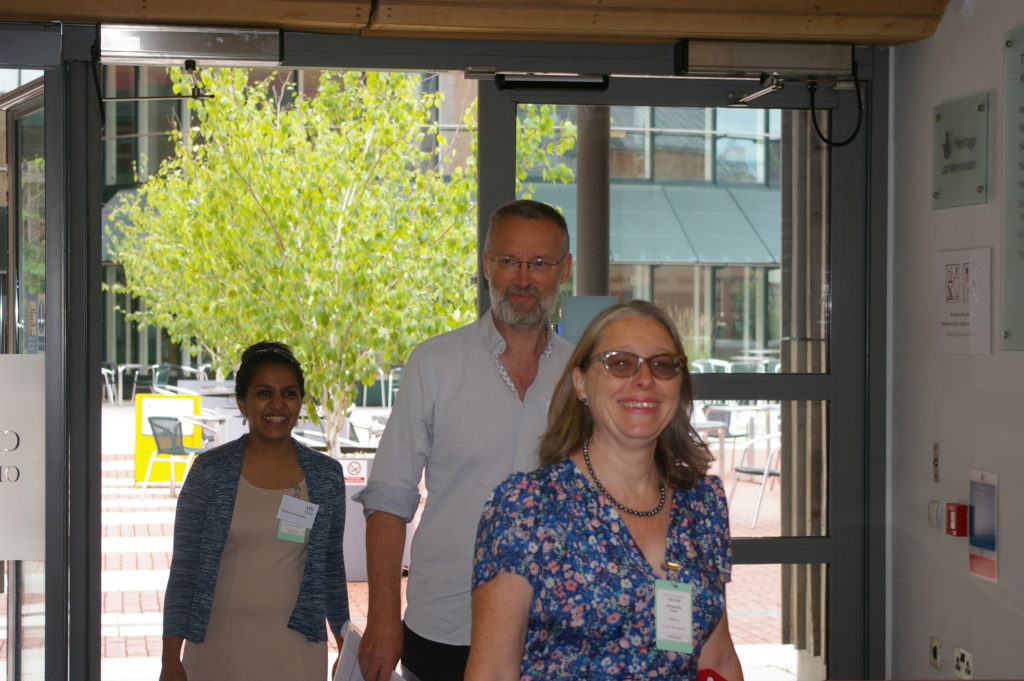
On Tuesday July 10 2018 the project’s second public event was held at the British Library in London.
35 people attended the free event, where they were able to view rare footage from the BBC’s vaults and consider what it can tell us about how our national broadcaster has imagined – and reimagined – Britain, its people, and their changing place in the world.
Guests were invited to contribute to the project by sharing their memories of the events, completing a survey, and selected guests were invited to share their reminiscences in filmed interviews.
They were given a sneak preview of the new Voices of the BBC website’s People, Nation, Empire pages, and the opportunity to see footage from the BBC oral histories archive.
Through a series of clips, lectures and discussions, the event focused on the challenges presented for the BBC by its responsibilities in a more multicultural and migrant Britain. For a broadcaster that claimed to speak to the whole nation, this meant a need and demand for new programmes, new voices, new faces. Clips from rare, previously unseen footage from the BBC archives were shown to give insight into the BBC’s attempts to reflect working-class life, to be less metropolitan in outlook, to represent different faiths and ethnicities – in short, to be truly inclusive. The event concluded with a tour of the British Library’s Windrush exhibition, led by the exhibition’s curators.
War from the inside: Oral histories from the BBC, The Keep (Brighton) (2019)
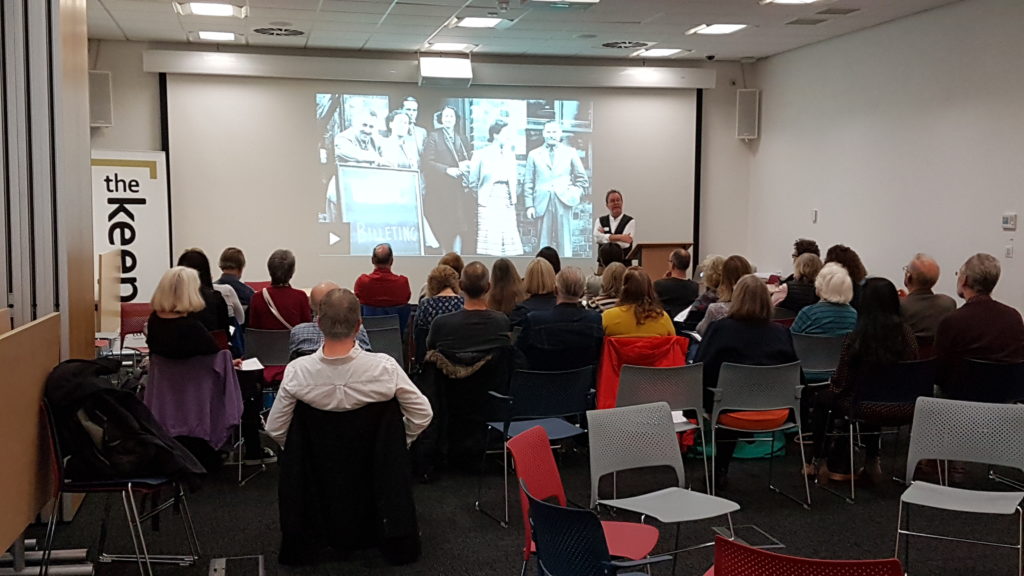
On the 19th October 2019 the third public event of the project was held at The Keep, a home to historic documents, including the Mass Observation Archive, partnered with the project.
The MO Archive’s curators teamed up with the BBC and the University of Sussex and through hearing personal accounts from key BBC figures, we traced how the BBC helped shape our experience of World War 2 – at home, abroad, and in our minds. By exploring rare recordings from the BBC’s vaults and the stories they tell about how our national broadcaster has reported war and helped us live through it, we retraced landmark coverage of the Blitz and D-Day, but also lesser-known stories from behind-the-scenes: the ‘secret war’ of coded messages and secret beams, the arguments over the hit-series Music While You Work, the strange life of siege experienced by a generation of broadcasters who felt themselves on the front-line.
Finally, participants had the chance to see new clips from the BBC’s archive and hear from the legendary war correspondent Allan Little. The event also offered a unique opportunity to participants to take their place in BBC history by bringing their own memories and visiting our special pop-up TV corner to record their reminiscences on film.


